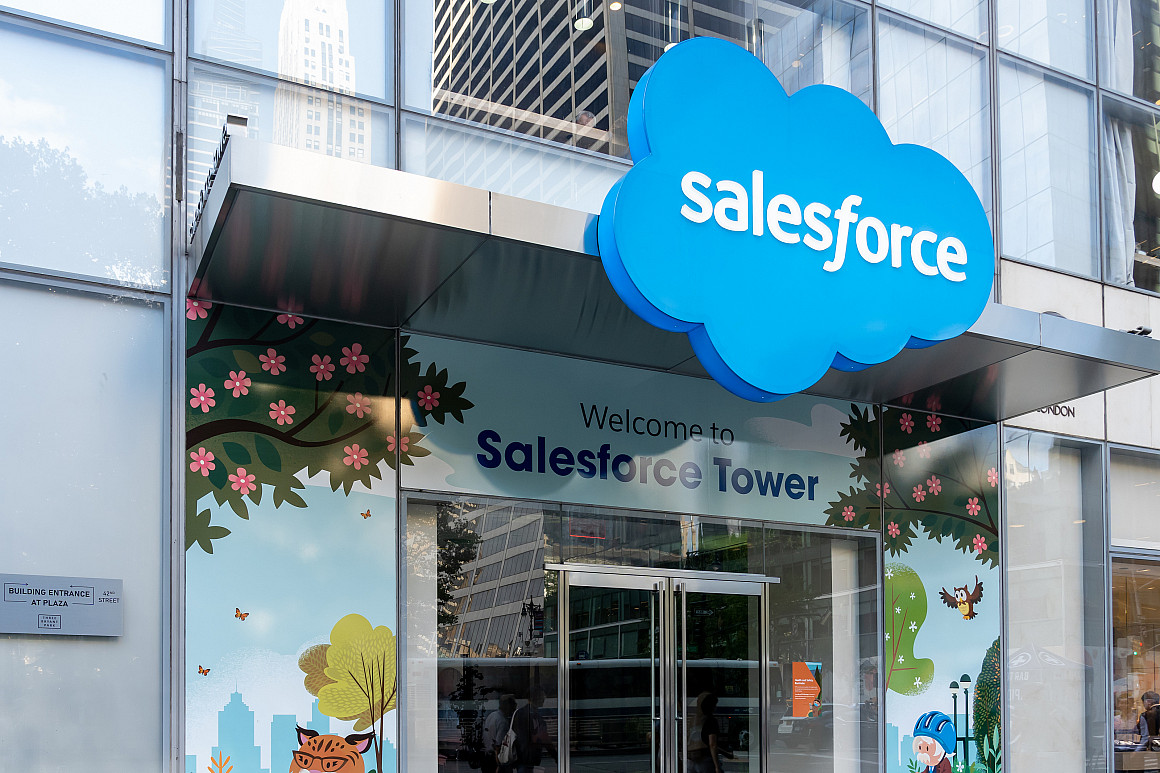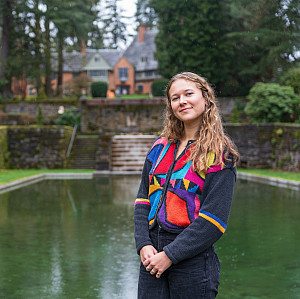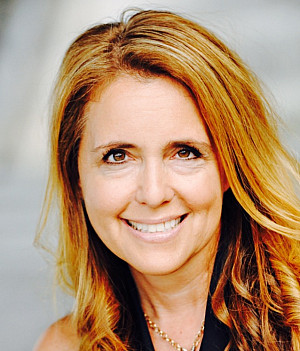Technology Literacy Opens Doors to Careers
Lewis & Clark is the first liberal arts college to offer an in-person, 4-credit Salesforce course leading to the company’s associate credential.
Liberal Arts 2.0

Elsa Horsted BA ’25 considers her minor in entrepreneurial leadership and innovation to be the perfect complement to her sociology and anthropology major.

Credit: Suhail Akram BA ’24“The minor is unique with its focus on collaborative, hands-on experiences and practice,” says Horsted. “I’ve gained many skills that will be invaluable in my future career.”
Among those skills: using Salesforce, a leading customer relationship management system. Salesforce is used by 150,000 companies across numerous sectors, including consumer goods, financial services, health care and life sciences, media, hospitality, and technology and engineering. Many nonprofits use Salesforce as well. Experience with the platform is a sought-after skill.
According to Chrys Hutchings, managing director of the Bates Center, Lewis & Clark is proud to be the first liberal arts college to offer an in-person, 4-credit Salesforce course that prepares students to take the Salesforce Associate Credential Exam.
Horsted was one of 14 Lewis & Clark students who enrolled in the Low-Code, No-Code Software for Entrepreneurship course offered last spring through the Bates Center for Entrepreneurship and Leadership. She believes that having the certification on her resume will communicate key strengths to potential employers.

“I strongly believe that the future of the liberal arts depends on partnerships like this one with Salesforce and in providing students with the opportunity to gain technical skills as a complement to their academic coursework,” says Meredith Goddard, who teaches the course. Goddard is Lewis & Clark’s director of enterprise applications and an adjunct instructor. “I am so proud of my students for their 93-percent pass rate on the Associate Credential Exam and for taking part in the class.”
As part of the Low-Code, No-Code Software course, students were broadly exposed to a wide variety of platforms and tools before they took a deep dive into the Salesforce ecosystem. For example, on the first day of class, every student opened a Shopify account, an e-commerce platform. In subsequent classes students were asked to create automations in Zapier and to wireframe websites using Figma or build out apps using Bubble.io. While the Salesforce certification is an important outcome, it is only one of many benefits of taking the class, says Goddard.

The course is also designed to give students a leg up in the job market. “We know the value of a liberal arts education and how well that is going to serve our students throughout their careers,” says Hutchings, “but a certification like this could help them get their first job.”
Hutchings offers a case in point: “I was speaking to a room full of employers recently and asked how many of them would want to talk to a Lewis & Clark student who knew Salesforce. Hands immediately shot up.”
Students trained in Salesforce will soon have an opportunity to apply that knowledge on campus. The Office of Information Technology’s enterprise applications team will hire a Salesforce Associate-certified intern. The student will work with the team to strategically improve—and potentially—expand the college’s use of Salesforce. Currently, Salesforce is used across campus to capture, organize, and leverage data to improve business processes and student outcomes.
“The internship will provide students with invaluable Salesforce development experience as well as help build a pipeline of Salesforce talent at L&C,” says Goddard, who is planning to teach the Low-Code, No-Code Software course again in spring 2025. “This is a great opportunity for Lewis & Clark students to put their Salesforce skills to use. A credential, plus work experience, will be an attractive combination for potential employers.”
Students who have completed the course are quick to cite its value. “I’m really glad I had the opportunity to take the Salesforce class,” says Horsted. “Like a lot of the entrepreneurship program classes, it felt like stepping into the real world. Hands-on experiential learning like this is great for really digesting a skill and applying it to something. You keep that knowledge with you for the rest of your life.”
More Stories

New Leadership
Welcoming the New Dean of Lewis & Clark Law School
On January 2, 2025, Alicia Ouellette took the helm as the Jordan D. Schnitzer Dean of Lewis & Clark Law School. “Dean Ouellette’s expertise and visionary leadership are exactly what is needed to build on the law school’s success and lead it into the future,” said Robin Holmes-Sullivan, president of Lewis & Clark.

Student Success
Scholarship Inspires Student to “Fan the Flames of Tribal Sovereignty”
Vincent Montanic Sheoships is this year’s Nelson D. Terry Scholarship recipient. “I am close to achieving my dream of becoming a practicing attorney, and I look forward to fanning the flames of Tribal sovereignty through upholding federal laws that make Tribes distinct and unique.”

Place-Based Learning
From Trash to Treasure: Creating Art From Waste
Cara Tomlinson’s Art and Ecology class uses waste materials from around Portland to create beautiful and meaningful works of art. This course offers a fresh approach to creative practice, merging art and ecology to help students respond to the climate crisis, explore the agency of materials, and build connections to place.

Belonging and Connection
First-Year Experience Positions Students for Success
Transitioning into college can be an emotional, busy time for students and their families. Lewis & Clark’s First-Year Experience team aims to create a smooth transition by laying the groundwork for a successful first semester.
